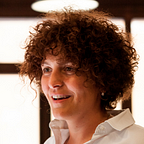Slow Cities: Regeneration and Integral Ecological Development for Rural and Coastal Communities.
Stories of Resilience and Innovation from Kesennuma to Pollica
As with every month, I returned last night from my (now customary) week in Japan with a suitcase full of hope, learnings, and opportunities.
This year, I’ve made it a rule to dedicate at least one day to discovery and listening, meeting with friends and partners of the Future Food Institute and special communities, immersing myself in stories of regeneration, and above all, continuing to build bridges of invaluable worth. This month, thanks to Kanako Chiba, a fellow at our Climate Shapers Boot Camp, I visited the city of Kesennuma (since 2014, the first Cittaslow city in Japan).
At the heart of the country, the city of Kesennuma is a witness to a story of reconstruction, resilience, and rebirth that shares much in common with our integral ecological development model and Pollica. A long-standing friendship, when Mayor Stefano Pisani was president of the CittàSlow International network, shared challenges and values, a great responsibility on their shoulders — preserving an ecosystem, biodiversity, small-scale fishing, and living heritages of inestimable value, and a new page in the narrative of communities that, despite geographical distance, share a vision of the future imbued with principles of slow living and sustainability.
Kesennuma, deeply marked by the devastating tsunami of March 2011, has risen above the tragedy through a reconstruction process centered on physical renewal and the strengthening of deep values, such as those promoted by the Cittaslow movement. The determination and vision of Akihiko Sugawara, today the president of the local Chamber of Commerce and once inspired by the book “Slow Life”, have charted the course for Kesennuma to become the first Slow City in Japan, emphasizing the importance of a life in harmony with the time, nature, and the community, and transforming it into a real engine for the economic and social development of the territory. I met with administrators, fishermen, businesswomen, and cultural figures, sharing experiences and territorial development models, noticing numerous similarities between Kesennuma and Pollica. It was interesting to see how both communities have developed a deep ecological awareness over the years that is manifested in the definition of every strategy, promoting new forms of enterprise and tourism capable of valorizing the territory and its gastronomic heritage. We discussed models like the “albergo diffuso”, agritourism, and the role of agrichef, as well as significant initiatives experimented with by the administration of Pollica, including the drafting of a Municipal Urban Plan centered on the concept of preserving the environment, natural resources (soil, water, biodiversities) and enhancing the “Food Scape”.
One of the driving forces in Kesennuma also lies in the female figures leading the community’s social development. The Kesennuma Cameria project, supported by the Chanel Foundation, is a glaring example, aiming to bridge the gender gap in local communities and to promote “public-private-civil society” partnerships. This initiative reflects the city’s ability to look forward, seeking to realize a fairer and more prosperous society. During our conversations, we also touched on the themes of fishing, the true economic engine of the territory, on how to preserve the sector and traditional methods while bringing innovation and opportunities for the younger generations.
A new concept of value in being “marginal” became clear to my eyes. Today, that is where values, inspirational models, and the essential resources necessary to redefine collective well-being, the codes of the true longevity algorithm, reside.
Kesennuma and Pollica demonstrate that resilience, regeneration, innovation, and a deep respect for slow living can not only rebuild communities devastated by tragedies but also trace a future that aims for true inclusive prosperity.
The Future Food Institute is an international social enterprise and the cornerstone of the Future Food Ecosystem, a collection of research labs, partnerships, initiatives, platforms, networks, entrepreneurial projects and academic programs, that aims to build a more equitable world through enlightening a world-class breed of innovators, boosting entrepreneurial potential, and improving agri-food expertise and tradition.
As we set our sights on the future, there’s a mission that will steer our efforts in the years ahead: “Reimagining FOOD as the catalyst that fosters FERTILITY, PROSPERITY & LONGEVITY of LIFE on EARTH.” It’s not just about understanding and shaping the future of food, but also harnessing its potential to uplift the very essence of life on our planet. By empowering millions and transforming communities, we are poised to make this vision a reality. Let’s together champion this cause, and, with conscious action and unwavering dedication, realize the change we seek.
Learn more at www.futurefoodinsitute.org, join the conversation on Facebook, Instagram, Twitter, LinkedIn, or YouTube. Or attend a program through the FutureFood.Academy!
